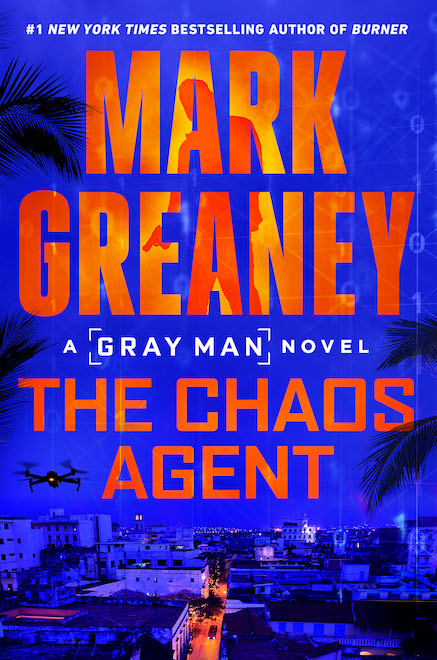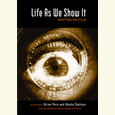Missing
A family’s heartbreak drives Laura Lippman’s new mystery
Closure is the oft-cited goal of victims of tragedy. Burying a loved one. Seeing the responsible party brought to justice. Resuming a life, however broken. But what happens to the loved ones of those who are simply missing? Or, even worse, to the loved ones of a person who disappears, of his own volition, after supposedly making provisions for them? In Laura Lippman’s new stand-alone mystery, After I’m Gone, the suspense builds as those left behind wonder about not only exactly what happened, but whether a husband, father, and lover might one day come back to them.
 Lippman has built a solid reputation as one of the best mystery writers in America. Whether in her Tess Monaghan series or in stand-alones like What the Dead Know, she writes bestsellers that are also multiple-award-winning, critically acclaimed novels. After I’m Gone will surely burnish that already stellar record. It is a story of suspense and mystery that probes the psychology of love and betrayal in ways that invite favorable comparison to another of the English language’s great artists, Ruth Rendell. Indeed, novels like this should put to rest the old idea that mysteries are somehow not true literature but only the poor, publicity-seeking cousins of real art.
Lippman has built a solid reputation as one of the best mystery writers in America. Whether in her Tess Monaghan series or in stand-alones like What the Dead Know, she writes bestsellers that are also multiple-award-winning, critically acclaimed novels. After I’m Gone will surely burnish that already stellar record. It is a story of suspense and mystery that probes the psychology of love and betrayal in ways that invite favorable comparison to another of the English language’s great artists, Ruth Rendell. Indeed, novels like this should put to rest the old idea that mysteries are somehow not true literature but only the poor, publicity-seeking cousins of real art.
In After I’m Gone, bookmaker Felix Brewer blows a hole in his family by skipping town before he can be sentenced to prison. He’s not a violent criminal, but in running to hide rather than doing time he condemns his wife, Bambi, and three daughters to a life without a center or steady income. He never tells them he’s safe, never gives a clue about where he went. Maybe his mistress, Julie, knows something, but she isn’t talking and disappears ten years to the day after Felix. Everyone believes Julie has gone to enjoy a life of luxury with her old lover. But in artful mysteries like Lippman’s, nothing can be taken for granted, least of all the fate of one of the protagonists. Julie’s body is found years later, bringing no more clues to Felix’s whereabouts and a fresh set of wounds to his family. Their world is the most tangled of webs—one which requires the devotion of a gifted detective to straighten.
Lippman’s retired homicide detective, Roberto “Sandy” Sanchez, is one of the most likeable detectives to come along in years. He’s got a tragic past, a humble, slightly depressed outlook, and the kind of dedication to his craft that inspires confidence that the mystery will be solved, the bad guys put away. He works cold cases as a consultant to the Baltimore police, spending hours in his otherwise empty home, devouring files and reworking old clues. “No gun, no badge,” Lippman writes of Sanchez. “It bugged him, a little, but only because the absence of those two professional tokens was a reminder that he was on a pension and still working at the age of sixty-three. Wasn’t supposed to be like that.”
After I’m Gone is told in a series of flashbacks that alternate with episodes in Sanchez’s present-day investigation. Beginning with Valentine’s Day 1959, when Felix and Bambi fall madly in love at first meeting, the story bounces through the decades as their daughters first learn to love a mercurial father and then to cope with being the children of the man who ran away. They grow very protective of their mother, isolated as they are within a world consisting largely of an extended family made up of Felix’s former business associates and their wives and children. The presence of these people at every birthday and holiday is a constant reminder of the disappearing act that defines their lives.
Felix’s legacy also includes Julie, the loyal other woman who is never physically present but is always there, a phantom reminder of his betrayal. As a result, each of the daughters has trouble relating to men, and their love lives are, to put it mildly, complicated. Contemplating her own broken marriage, one daughter reflects, “Really, one could argue that watching soap operas was downright redundant at this point.” But it is, of course, all those broken relationships that will eventually lead Sanchez to the solution of the decades-old crime, a solution that Lippman has, as a true master always does, concealed in plain sight.
Sanchez is a man with time on his hands, and time is often what is needed to solve the hard cases. The disappearance of Felix Brewer and the murder of his mistress may be complicated, but Sanchez keeps going, a somber but ultimately optimistic fellow who has seen what time can do. Destiny, he believes, “can afford to be patient. Destiny has all the time in the world.” Readers should be thankful that Laura Lippman has taken the time to bring After I’m Gone to life.
Laura Lippman will discuss After I’m Gone at the Nashville Public Library on February 12, 2014, at 6:15 p.m., as part of the Salon@615 series. The event is free and open to the public.


